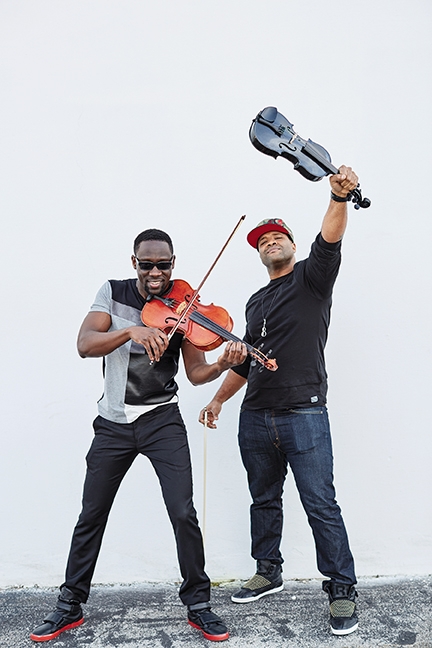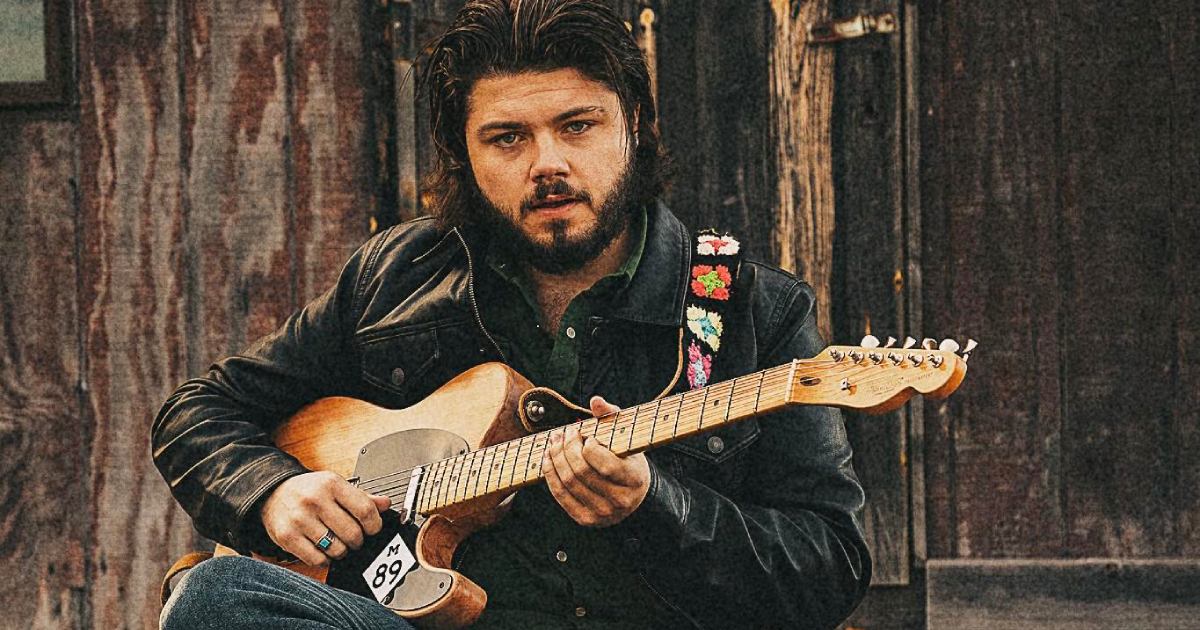At six feet, two inches tall and 260 pounds, violinist Kevin Marcus knows he’s not exactly what most people think of when they envision a classically trained string player.
He’s also all too aware that he can strike an imposing presence, not only because of his size, but because of his race.
Marcus candidly discusses both on Stereotypes, the powerful opening title track, of Black Violin’s latest LP of the same name. Marcus explains that the reason he smiles when he performs now is because he’s “crushing people’s perceptions of not only what a violin can do, or what music can possibly sound like, but also of what a black man is capable of.”
As that last sentence echoes into the stirring closing refrain of the song, it shakes listeners loose from any preconceived ideas they might harbor about racial boundaries or classical music in 21st Century America.
When Marcus first discovered the violin, however, he hated it. Only in fifth grade and already in trouble, his mother intervened and enrolled him in a string class. There he met Wil Baptiste, a fellow hip-hop fan who also had reluctantly picked up the viola.
Both attended Dillard High School of Performing Arts in Fort Lauderdale, Fla., and with the help of their orchestra teacher, James Miles, came to love and master their instruments.
Upon graduation, Baptiste and Marcus attended different colleges, where they both earned degrees in music. But their shared love of hip-hop never left their minds, and after earning their classical string training, the duo decided to team up and become the next big-name producers in the hip-hop world.
Noticing that their virtuosic abilities on violin and viola dropped jaws every time they performed live, they soon decided to combine their string skills with their beat drops.
“We’re not trying to do it. It’s who we are,” Baptiste said of Black Violin’s unprecedented combination of sounds. “I was hip-hop before I was classical, so it’s very natural for me to do what I do.”
Less than a year after starting out, Black Violin performed with the legendary Alicia Keys in 2004 and soon after won over the notoriously difficult crowd on Showtime at the Apollo, catapulting the duo onto stages across the country. They’ve since performed with symphony orchestras and superstars like the Wu-Tang Clan and Mike Shinoda of Linkin Park.
“We’re definitely bridging the gap between different genres of music, but we’re also bringing different cultures and people together,” Baptiste said. “I think it’s important. Not only for classical music, which desperately needs the younger generation to enjoy it, but also too, I think the younger generation needs to understand and appreciate this art form that’s been around for hundreds of years.”
Now with three acclaimed LPs and performances at everything from concert halls to NFL events and President Barack Obama’s 2013 inauguration, Baptiste and Marcus have made it their statement to use their success to spread the importance of the arts in education, including classical music.
“Everybody loves the sound of a violin,” Baptiste said. “I’ve never heard anyone say, ‘I hate the way a string instrument sounds.’ People always look at that instrument as being incredibly difficult, so to bring that world closer to this world, I think that gives people this idea that not everything is impossible. Not everything is out of reach. You see us perform, you see us onstage, and this idea of classical music is a lot more reachable. That world is a lot more attainable.”
The group works with organizations across the country to help establish greater access to the arts, especially back home in South Florida, where the middle school they once attended currently does not have a string program, something they hope to soon rectify.
“It’s just as important for kids to be able to express themselves, and be comfortable with expressing themselves, as math or science or football or basketball,” Baptiste said.
Black Violin is hard at work on its upcoming fourth album, which Baptiste said will stay true to the sound of “beautiful, lush strings on top of hard-hitting beats” and feature even more unexpected collaborators.
“It feels good to be able to do something that you truly love and enjoy and inspire people at the same time,” Baptiste said. “You can’t get any better than that. With the kids, the young musicians, we tell them that the most important thing is to be yourself. Be who you are. Because there’s enough Black Violins and Jay-Zs of the world. We need whoever you are. Just be who you are, and I think with that, you’re more comfortable, and you’re happy when you wake up in your own skin.”
Black Violin
Miller Auditorium
1341 Theatre Dr., Kalamazoo
May 4, 8 p.m., $30-45
millerauditorium.com,
(269) 387-2300





